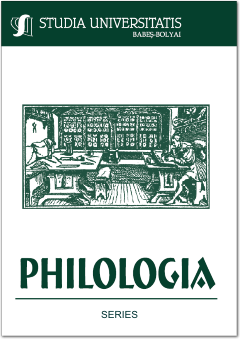A NEUROCOGNITIVE ANALYSIS OF IDIOSYNCRATIC SEMANTIC BORROWINGS IN THE DISCOURSE OF BILINGUAL ROMANIAN IMMIGRANTS IN SPAIN
A NEUROCOGNITIVE ANALYSIS OF IDIOSYNCRATIC SEMANTIC BORROWINGS IN THE DISCOURSE OF BILINGUAL ROMANIAN IMMIGRANTS IN SPAIN
Author(s): Paul BuzilăSubject(s): Theoretical Linguistics, Comparative Linguistics, Sociolinguistics, Cognitive linguistics
Published by: Studia Universitatis Babes-Bolyai
Keywords: relational network theory; semantic borrowing; Romanian; Spanish; Rumañol; neurocognitive linguistics;
Summary/Abstract: A Neurocognitive Analysis of Idiosyncratic Semantic Borrowings in the Discourse of Bilingual Romanian Immigrants in Spain. In this paper we look at the semantic borrowings that spontaneously emerge in the oral discourse of bilingual Romanian immigrants who live in Spain, and we analyze them from a neurocognitive perspective. Also known as Relational Network Theory, this approach conceives language as an interconnected relational network composed of nodes and lines. Linguistic processing is a result of spreading activation through the network. We use this approach to explore the mechanisms underlying the oral production of semantic borrowings selected from corpora of Romanian spoken in Spain, and we model them, using the NeuroLab tool, in relational network terms. The network modeling shows that these hybrid forms emerge naturally from the properties of the system and can be explained in terms of shared parts of either phonological or semantic subnetworks involved in the production of analogous forms. It also delivers additional explanation to the proliferation of mixed meaning and sound induced semantic borrowings in the form of a higher pressure for rewiring coming from two different parts of the system.
Journal: Studia Universitatis Babes-Bolyai - Philologia
- Issue Year: 65/2020
- Issue No: 4
- Page Range: 55-74
- Page Count: 20
- Language: English

